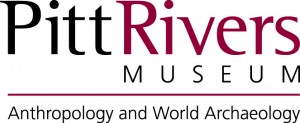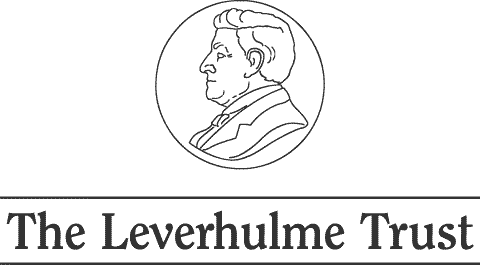To search the RPR site click here
Henry Wentworth Acland (1815-1900) was an English physician and academic at the University of Oxford. He was appointed Lee's Reader in Anatomy at Christ Church in 1845, where he worked in the college's anatomy museum. Two years later he was elected a Fellow of the Royal Society and Radcliffe Librarian, Oxford; and in 1852 he was appointed Regius professor of medicine, a post he retained until 1894. According to this site Acland was principally responsible for the existence of the University Museum at Oxford. From 1845 he campaigned for a new museum to house research and training facilities for the sciences and to bring together the scientific collections that were spread throughout the University.
After the establishment of the University Museum in 1860 Acland (as an academic in a scientific discipline) was based there. He was also curator of the university galleries and the Bodleian Library. He was created a Baronet in 1890. In the image on this page he is seated on the front row towards the right hand side, second from the right.
Pitt-Rivers and Acland
Acland first apparently enters our story in January 1882. A committee of members of Convocation was earlier appointed to consider Pitt Rivers’ offer of his founding collection to the University of Oxford, and they produced a report for the Hebdomadal Council in January 1882. The Committee consisted of the Regius Professor of Medicine (Acland), Professor Smith (Henry Smith, mathematician and Keeper of the OUM), Professor Prestwich (John Prestwich, Professor of Geology), Professor (John Obidiah) Westwood, Professor (Henry Nottidge) Moseley and Mr Pelham (Henry Francis Pelham, historian (of Rome), tutor in classics at Exeter College). These men apparently visited the collection during the course of their deliberations:
‘The Committee have examined the Collection on several occasions, and having had its contents and purposes explained to them by Major-General Pitt-Rivers in person, are thoroughly convinced of its great importance, and, believing that its presence in Oxford could not but prove of great assistance to students in almost all branches of study, and of great value in aiding general education…’ [PRM foundation volume]
Pitt-Rivers did voice disquiet in a letter to Acland, dated May 1882, over the suggestion that his objects should be added to those already held by the Ashmolean:
‘I am afraid the incorporation of the Ashmolean Museum with mine may spoil it. Valuable as the objects in that Museum are it has a different object & had better be kept apart.’ [21 May 1882, Bodleian, MS. Acland d.92, fols.75-76]
The group leading the plan to bring the founding collection to Oxford – Moseley, Acland, Westwood, and others—clearly saw the donation as a chance to further the cause of Anthropology at the University. Moseley hoped to attract students to the subject, and Pitt-Rivers had offered Acland luck in his ‘endeavours to promote anthropology in Oxford’. In May 1882, Pitt Rivers responded, in great detail, to a set of ‘proposed schedules of study for Honours in Anthropology’ sent to him by Acland. His letter to William Hatchett Jackson, which outlines the different ‘sub-sections’ of anthropology and their relationships to each other, is kept in the Acland papers at the Bodleian [MS Acland d. 92, fols. 79-90].
The Delegates of the University Museum considered Pitt Rivers’ offer at a meeting in April 1882, at the request of the Hebdomadal Council. They also appointed a Committee, comprising Acland, Moseley, Westwood and Prestwich, ‘to report on the amount of space which the Collection would occupy, and on the probable cost which would be required for new building and cases’ [OUMNH, minutes of the meetings of Delegates, 1867-1888, 1882.7]. In November 1882, the Keeper of the University Museum was able to report that a deputation had been appointed by the Hebdomadal Council ‘to confer with General Pitt Rivers on the subject of his proposal to give to the University his ethnological collection’. The deputation consisted of Friedrich Max Müller, Professor Archibald Henry Sayce (friend of Müller’s and deputy Professor of Comparative Philology), Canon Stubbs (possibly Canon William Stubbs, the historian and later (1888) Bishop of Oxford?), Acland, Westwood, Prestwich, Moseley, Maskelyn, (Professor of Mineralogy Oxford), Mr Pelham and the Keeper (Henry Smith) [OUMNH, minutes of the meetings of Delegates, 1867-1888, 1882.12].
Eventually the University agreed terms with Pitt-Rivers, as expressed in the Deed of Gift, and also agreed to provide an extension to the University Museum to house the collection. Thereafter day to day control of the collection passed to Moseley and Acland's involvement lessened. However, it did not cease. Pitt Rivers was in touch sporadically with Acland and Balfour during 1887 and 1888 (see PRM foundation volume and OUMNH papers). For example, Acland wrote to Pitt Rivers to ask his advice on Balfour’s future following Moseley’s illness in October 1887. Since Acland did not want to disturb Moseley with the issue, he asked whether Pitt-Rivers would have any objection to the University guaranteeing to keep Balfour on for a further 3 years (OUMNH, 1885/1, box 2). Since Moseley’s illness in 1887, Balfour had taken full charge of the project of unpacking and arranging the collections at the University Museum.
Acland became involved again when Pitt-Rivers and Balfour disagreed about the publication of a paper about composite bows by Balfour in 1887. Acland obviously kept an overseeing role for the whole of the University Museum, within which the Pitt-Rivers collection was still considered to be incorporated. In June 1889, Acland wrote to the Dean of Christ Church about the natural history collections 'so far as they progress study in Oxford'. Within natural science collections he includes zoology, comparative and human anatomy, ethnology and geology. He excluded mineralogy:
‘It is therefore necessarily the centre from which the other departments branch – viz the study of extinct flora and fauna, in Palaeontology; with their relation to evolution and classification, in zoology and botany, and the wide range of Comparative & Human Anatomy, with Ethnology. The vast array of Fact & Law exhibited in series by each collection is therefore important for the Human Anatomist, the Physiologist,& the Geologist. It would therefore be fatal to the study of the organic world in Oxford should the collection be divided.’ [H.W. Acland to Dean of Christ Church, 16 June 1889 1885/1 History of OUMNH 1874-1902 Box 2, HW Acland correspondence]
Henry Acland was still active, albeit in his mid-seventies, but he seems to have had a more distant relationship with Pitt-Rivers and with the collection once it had arrived in Oxford.
See here for correspondence between Pitt-Rivers and Acland.
AP, April 2011

![Baldwin Spencer, and Henrys Balfour Moseley and Acland in the University Museum [1998.267.85]](../../component/joomgallery/1998_267_85_20110420_1901540925-view=image&format=raw&type=img&id=689&Itemid=41.jpg)


